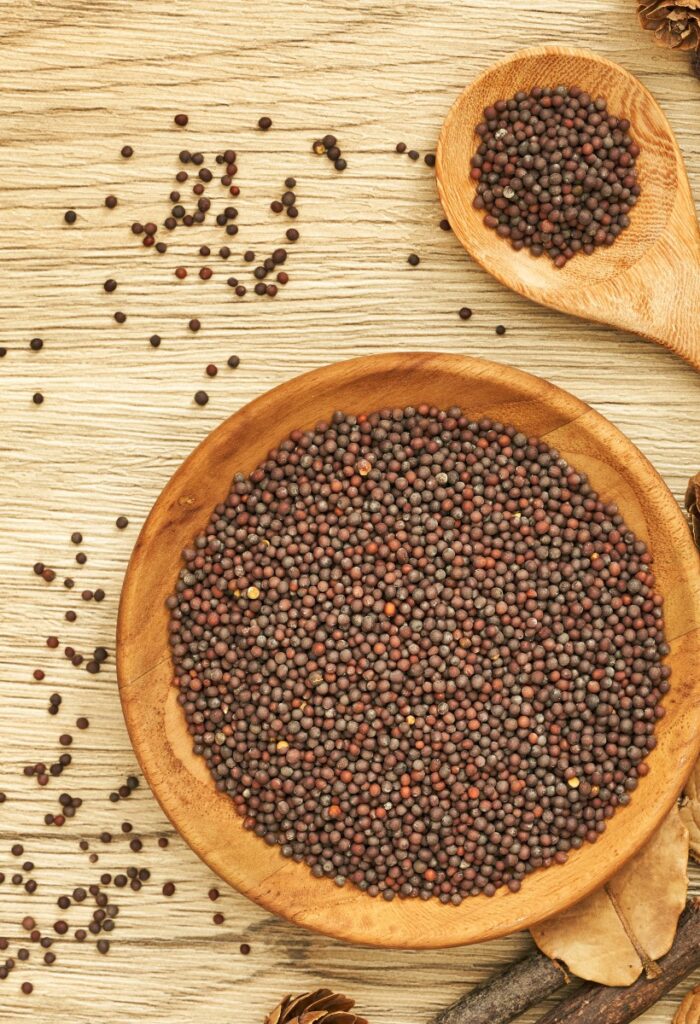Cooking Oil, Mustard Oil
What Are the Various Uses of Yellow Mustard Oil in Traditional Medicine? Exploring Its Therapeutic Applications
Centuries of traditional medical procedures in perse civilizations have employed yellow mustard oil, which is obtained from the seeds of the mustard plant. A mainstay of holistic healing and wellness regimens, its therapeutic qualities have made it such. The uses of yellow mustard oil are numerous, ranging from cosmetic to therapeutic. Let us explore its traditional usage and therapeutic uses in more detail.
Anti-inflammatory qualities:
Alkyl isothiocyanate, one of the substances in yellow mustard oil with anti-inflammatory qualities, is one such chemical. In traditional medicine, it is frequently applied topically to reduce inflammation brought on by ailments like joint pain, strained muscles, and arthritis.
Analgesic outcomes:
It’s thought that using mustard oil relieves discomfort. A typical technique in traditional medicine is to massage the problematic area with warm mustard oil to relieve headaches, migraines, and muscle discomfort. Additionally assisting in pain treatment is its warming impact, which enhances blood circulation.
Respiratory conditions:
It is believed that breathing in the vaporized form of mustard oil may open up nasal passageways and relieve respiratory congestion. The traditional medical community frequently uses it to treat sinusitis, colds, and coughs. Also thought to assist relieve breathing difficulties are massages with mustard oil on the back and chest.
Skin health:
The skin-nourishing effects of yellow mustard oil are highly valued. It helps keep the skin supple and moisturized thanks to its abundance of vitamin E, antioxidants, and important fatty acids. Various skin diseases like eczema, acne, psoriasis, and dryness are treated with it in traditional medicine. Furthermore useful in treating skin infections are its antibacterial qualities.
Take care of your hair:
Many traditional hair care regimens include mustard oil to help preserve the health of the scalp and encourage hair growth. Warm mustard oil massages the scalp, stimulating blood flow and fostering the growth and sustenance of hair follicles. Dandruff and premature graying are also said to be avoided by it.
Help for digestion:
Tiny doses of mustard oil are said to boost appetite and aid with digestion in traditional medical practices. Especially in recipes with heavy or fatty ingredients, it is frequently used in cooking as a digestive aid. Also, it is believed that massaging the abdomen with mustard oil reduces bloating and discomfort related to the digestive system.
Antimicrobial Qualities
Against bacteria, fungus, and other infections, mustard oil works well because of its antibacterial characteristics. Applying it topically to wounds, cuts, and bug bites is standard practice in medicine. Furthermore advantageous to oral health due to its antibacterial properties, it can occasionally be gargled or used as a mouthwash.
Conclusion
The medicinal qualities of yellow mustard oil have made it valuable throughout its lengthy history in conventional medicine. It is a treasured cure in holistic healing methods because of its many applications, which range from reducing pain and inflammation to enhancing the health of the skin and hair. More research is necessary to fully understand its potential and methods of action, even though anecdotal evidence and centuries of use indicate its efficacy. By adding yellow mustard oil to our wellness routines, we can embrace the wisdom of ancient medicine and provide a natural, all-encompassing approach to health and vibrancy.

